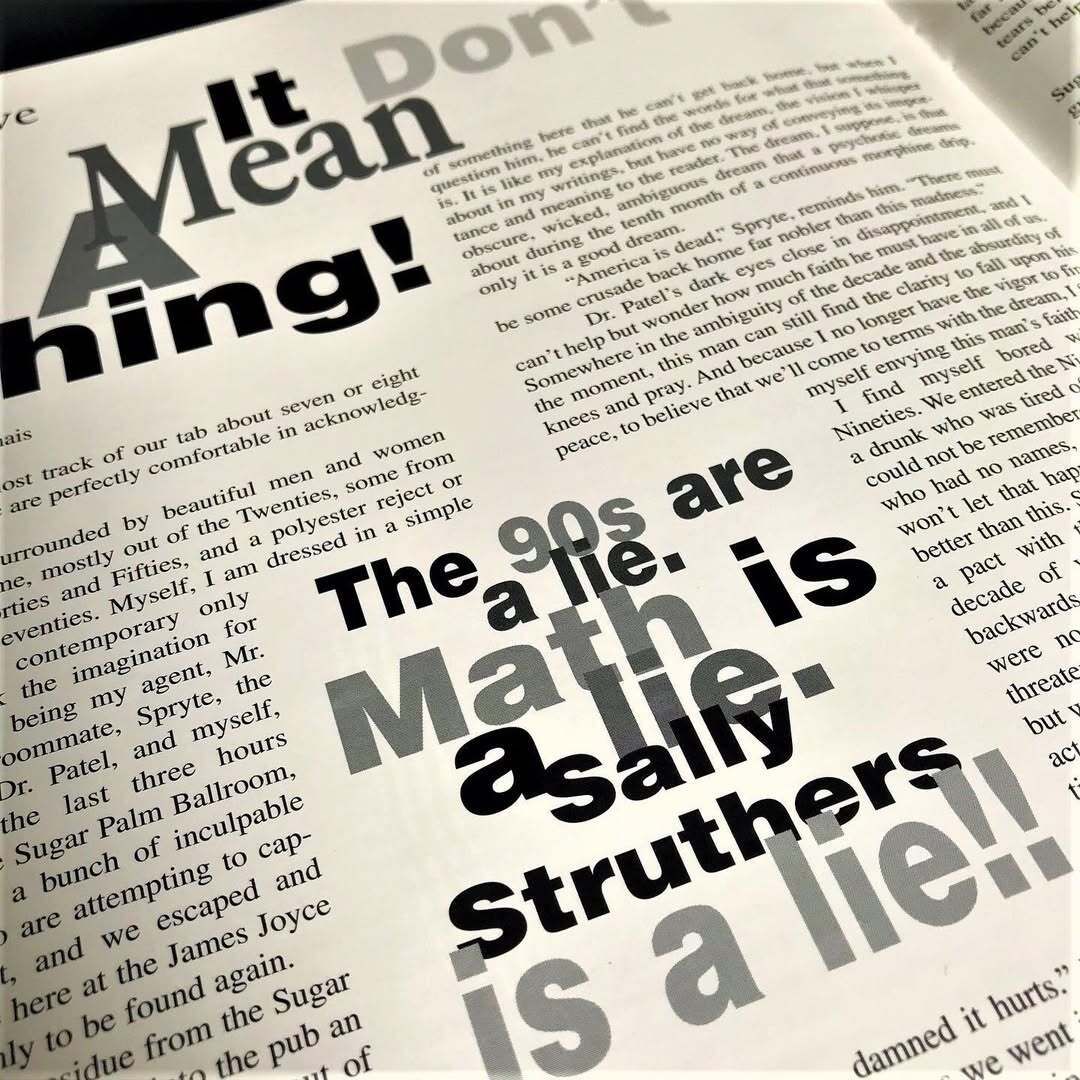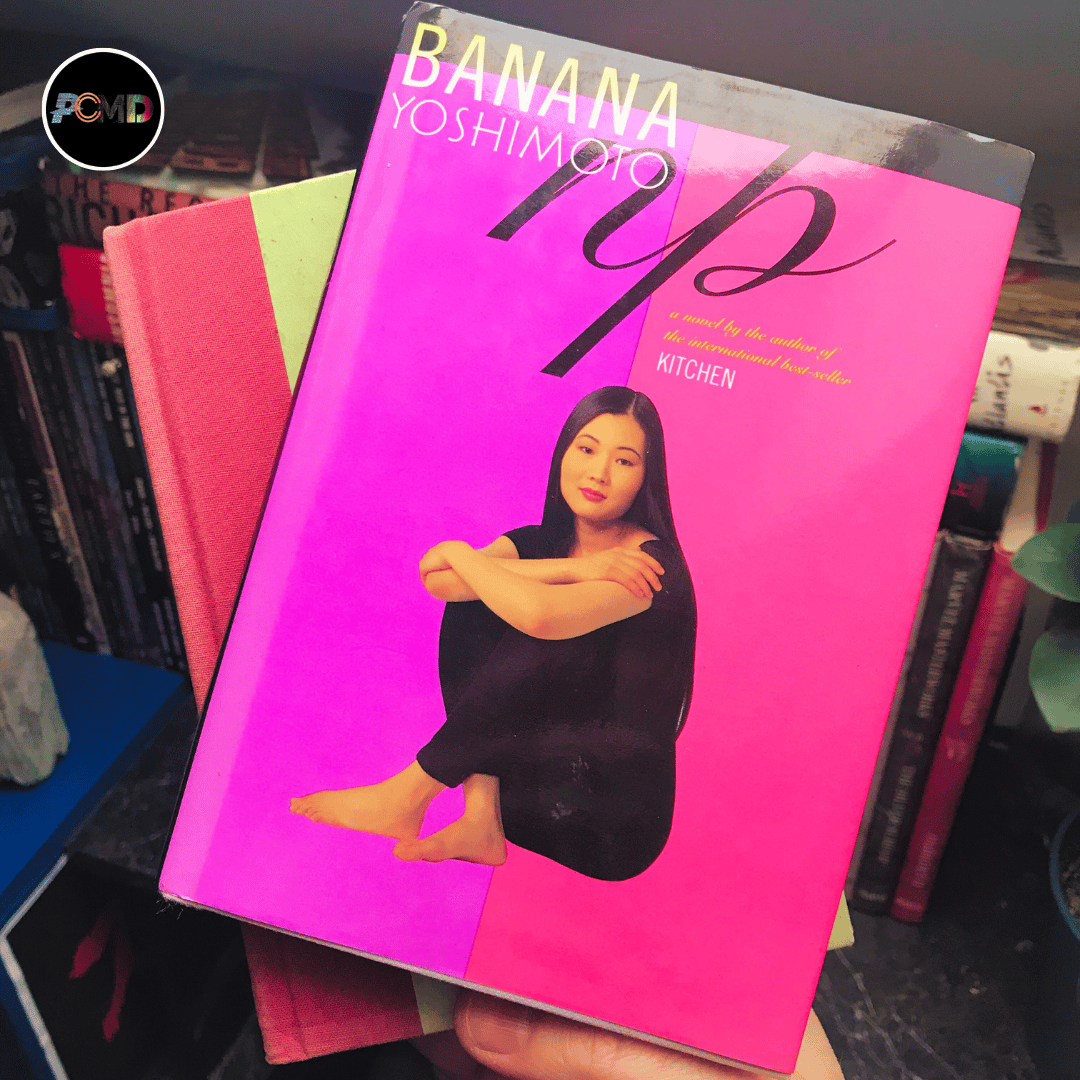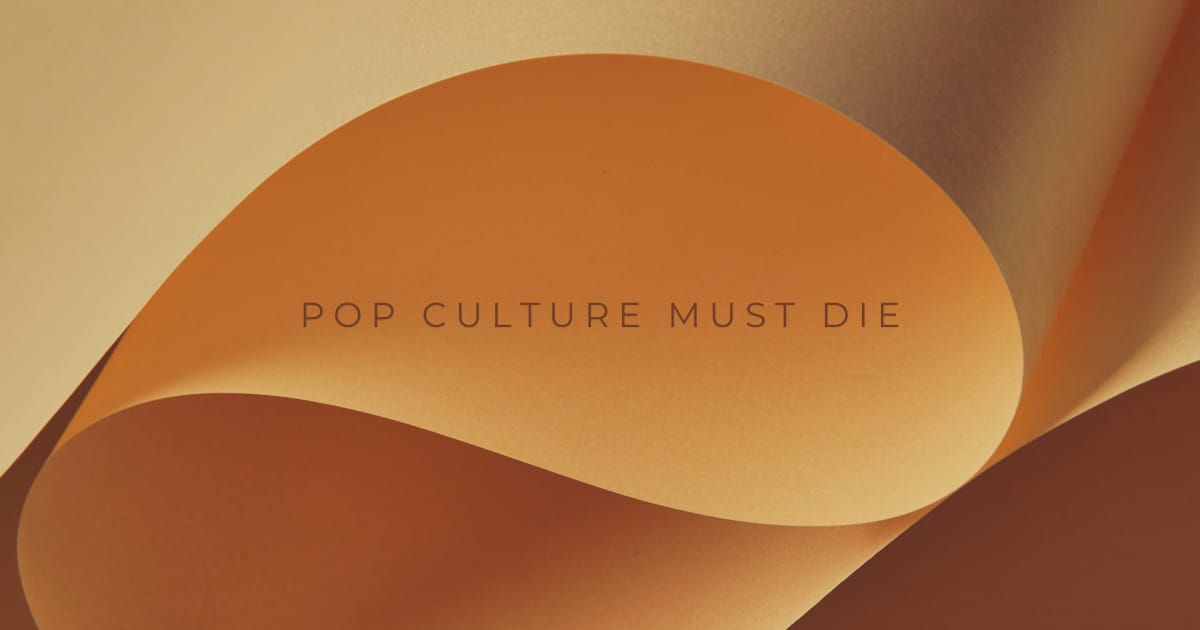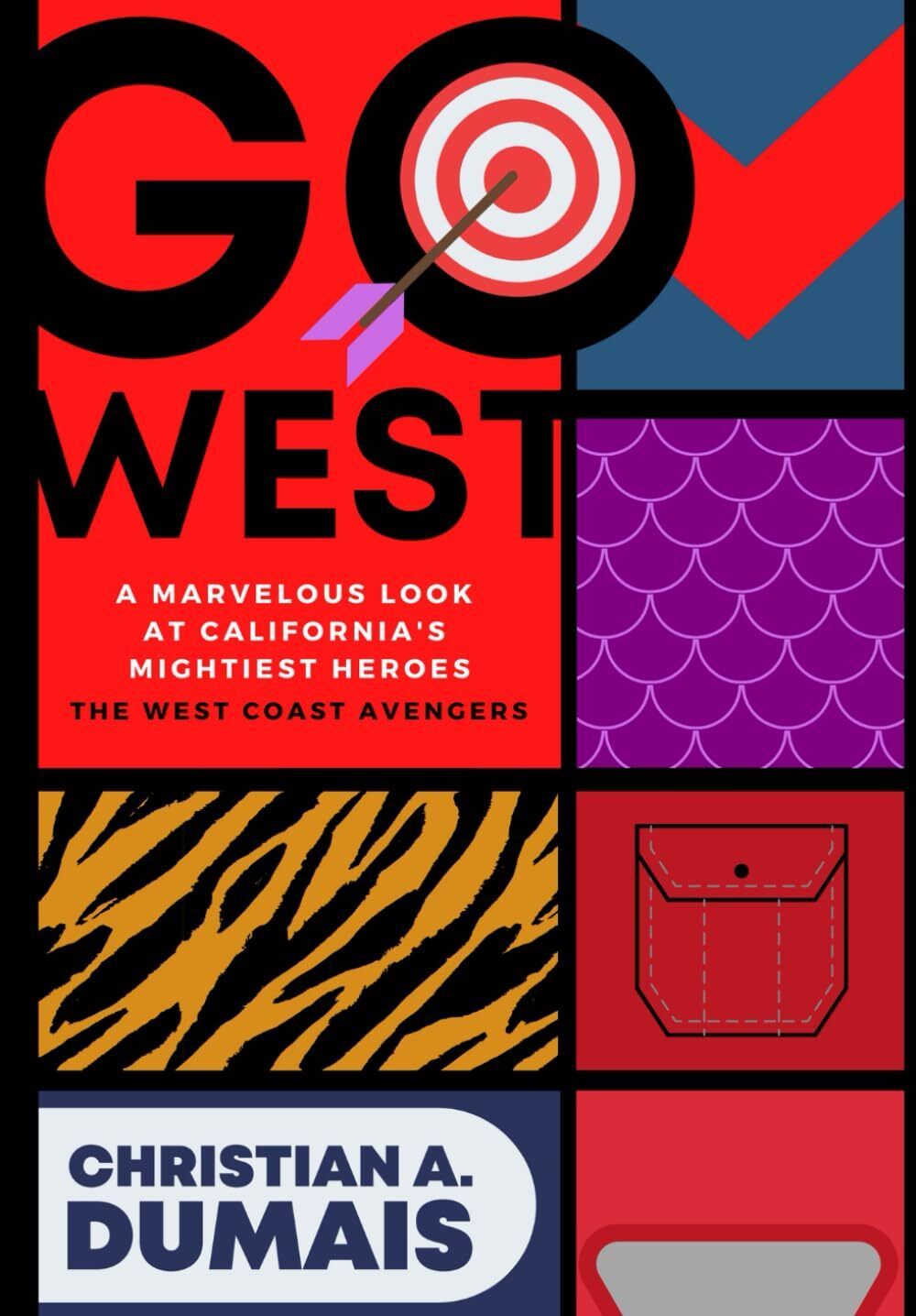OPENING MONOLOGUE
Hello there from Poland.
Pop Culture Must Die is the official newsletter for Christian A. Dumais — an American writer and freelance editor living in Poland. His books include Smashed, Killing It, and Go West.
NPR said, "People get paid a LOT of money to write comedy who are not one-tenth as funny as [Christian]."
Your mileage may vary.
This one is a little longer than usual, so let’s get this one started, shall we?
AT THE DESK
The Shit Sandwich
Every once in a while, someone on social media is surprised to learn about Gen X’s ephemeral fascination with swing music and dancing back in the 90s. Even I keep forgetting it was a thing, like Zima and OK Cola.
Back in 1998, I was assigned to write a simple review of a new local swing dance club for a magazine, but I turned in an indictment of the whole movement instead:
“The crusade of Swing is an illusion; the reaffirmation that our generation is lacking in the substance and drive that defines an era. It gives us the opportunity to clean ourselves up, put on a suit and mingle without having to spend energy on something new. If every generation eventually looks back and recaptures an era to play around in, what exactly will the people of the future extract from the Nineties?
And while we wait for that answer, I know at dawn I will hate myself, because I’ll come to terms with the fact that we could have been starting a revolution, or perhaps a new religion, but instead, we got drunk, sloppy and stupid, inside an era that was nothing like our own.”

Here’s what the article looked like as published in City Style Magazine.
I was critical of the 90s as I was living through it. But now, looking back, I appreciate its innocuousness, especially when compared to the never-ending dumpster fire the new century brought in.
(I know that this “innocuousness” was anything but, and you can make the argument that our failure to get things done in the 90s is what helped usher in said never-ending dumpster fire. But I’d argue that no matter what we did, 9/11 would have made all that redundant anyway.)
One of the things that made it so great was the whole “Why not?” approach to the decade: Can we make Pepsi clear? Can we make beer iced? Can we wash these jeans with acid? Can we dress like lumberjacks and be sad together? Can Clarissa explain it ALL? Can babies be geniuses?
With that can-do attitude, it makes sense that we randomly took things from the past to make them our own. Can we bring back swing dancing? How about John Travolta? How about Gregorian chants? How about dinosaurs? Can two brothers imitate the Beatles?
The 90s were weird, but the decade didn’t have a choice. The wall fell, the Scorpions sang a power ballad, and this apocalyptic anxiety that had defined generations had simply faded away. At the same time, grunge music took over the radio and started openly and clearly expressing our muddled internal thoughts — confusion, depression, alienation, cynicism, distrust, anger.
What exactly were we angry about?
We were upset about the Shit Sandwich. This is the giant meal every generation has to eat — the cold realization that it’s all meaningless. It’s the understanding that no matter how hard you try, how good you are, how right you are, and how perfect you pretend to be, the quality of your reality is a fucking crapshoot. Or as George Carlin put it, "The reason they call it the American Dream is because you have to be asleep to believe it."
The Shit Sandwich is passed on from generation to generation, but most people don’t eat it until it’s too late — after college, after decades of work, etc. But because Gen X grew up being overwhelmed with pop culture and information, they found out about the Shit Sandwich too early. What was the point?
I’ve written a lot about Gen X’s propensity to deal with life through a grunge-fueled, Jolt-caffeinated cloud of irony, a pattern of behavior many of us are still trying to unlearn to this day. So there’s something special about those anomalous moments when we did jump into something with sincerity. And for better or for worse, swing music was one of those things.
“Our individual dramas have become one and for this moment in time, we are not ourselves; we are not even human, but instead, we are a part of something beautiful and mysterious, something that the outside world can no longer provide. I feel so alive, with the energy I used to carry with me as a child, that I am spinning and dipping her without any thought to the potential consequences. In this world, there is no pain, no tears, only laughter and fireworks.
I am suddenly a god; we are all gods here. I am powerful and omniscient; so all knowing, in fact, that I suddenly believe that all I have been taught is a lie.”
Swing dancing was like trying out an outrageous suit in a dressing room. One you’d never wear in public, but you couldn’t help seeing how you looked.
For a brief moment in time, we not only looked good, but we gave a shit.
(“It Don’t Mean a Thing” was republished in my book Empty Room Lonely Countries as “The Illusion of Swing.”)
I edited 1.5M words in 2024. If you think I could be a worthy addition to your content team or the right person for your manuscript, let’s talk.
READING LIST
Banana Dreams
I had a dream the other week where I couldn’t find my Banana Yoshimoto books. When I woke up, I realized that I hadn’t thought about those books in decades. Did I even have them still?
I went upstairs and started going through my library and, unlike my dream, I managed to find two of them: N.P. and Kitchen. I was so relieved.
Dreams are such an important part of Yoshimoto’s work. They operate at a level of truth that equals, if not surpasses, reality itself. So I thought it would be appropriate to give these books another read.

My copies of N.P. and Kitchen, with a missing cover :(
One of the reasons why I’ve been so consumed with re-reading so many of the books I’ve read before is because it helps connect me to the person I once was.
I don’t know about you, but I’m always thinking about the person I used to be when I was younger. I think about my oldest friends who have had access to a version of me that no longer exists.
In many ways, I’m a better person today because time has made me less stupid. But then there are the other aspects that I wish I held onto more, like optimism, fearlessness, and openness to magic.
(This might be the thesis of Pop Culture Must Die if I’m being honest — reconciling the gravity of my past with the orbitless self I’m becoming. It’s a tale as old as time.)
I picked up my Banana Yoshimoto books from a Tampa Borders bookstore in 1994. I discovered her through a Rolling Stone article about the Counting Crows. The article offhandedly listed authors Adam Duritz was reading at the time, and there was Banana Yoshimoto. I had never heard of her. I mean, Banana Yoshimoto is one hell of a name. It makes you curious.
(I’m weirdly nostalgic for those pre-internet days when a casual reference to the writer in a random article was enough to island-hop from one thing to the next. We lived off a series of breadcrumbs.)
If you haven’t read Yoshimoto, her books focus on urban existentialism and how it affects young people, especially those trying to hold onto the purity of youth while grappling with the violence of modern life.
If you read a summary of her books, you would think you were about to read a horror story. For instance, N.P. is about a collection of short stories written in English by a Japanese writer, Sarao Takase. After the writer’s suicide, an attempt is made to translate the book into Japanese for publication, but every translator ends up taking their own life. As the story begins, four translators are dead, and we’re following Kazami Kano, the girlfriend of the last translator, as she attempts to move on with her life while flirting with the idea of translating the book too. Now that sounds like a scary story, right?
I’m giving more attention to the manuscript and the suicides than the book does because they’re almost an afterthought. N.P. is more interested in Kano and her serendipitous run-ins with Takase’s grown children. The story deals with the aftermath of a distant father and a father who was too close (in the case of one of the daughters). Yeah, that.
It all sounds so heavy, and it should be, but Yoshimoto writes with the weight of a feather and instead focuses on the minutiae of merely existing. It’s bouncy — as if to say, hey, we all have our own horrors to deal with but they don’t make us who we are. We still have to live.
Kitchen, a book comprised of two stories, is more streamlined in its theme: grief. The eponymous story dominates most of the book and is about a young woman, Mikage Sakurai, dealing with the death of her grandmother.
The second story, “Moonlight Shadow,” is about a young woman, Satsuki, trying to move past the death of her boyfriend. She keeps meeting a strange older woman who insists that they meet at a bridge one early morning to witness something magical.
Yoshimoto’s prose is sparse, almost Hemingway-esque, making both books breezy reads. They’re good books, but I know I’m not loving them as much as I did 31 years ago. I’m not the same person. I’m a copy of a copy of a copy of the person I was.
But I do appreciate Yoshimoto’s ability to express loneliness — even when you’re surrounded by those you love. I know with certainty that was the part I locked onto the first time around. And, for better or for worse, that part of me has remained.
Recent read: GENERATION X by Douglas Coupland Here's what I had to say ➡️ www.popculturemustdie.com/p/i-had-all-... #writingcommunity #popculture #booksky
— Pop Culture Must Die (@popculturemustdie.com) 2025-02-21T07:18:21.003Z
RANDOM SEGUE
Don’t Give Up
When Stephen King was a struggling writer, he famously threw away the first few pages of a story that wasn’t working. His wife removed it from the trash the next day, read it, and told him he should continue the story.

Those few pages turned into the novella Carrie (I talked about this book here), which would go on to be King’s first published book. Carrie’s immense success would launch a writing career that spans 6 decades and includes over 70 books.
In the event you don’t have someone like Tabitha King (a great writer in her own right) in your life, don’t give up on your ideas so easily.
What doesn’t work today could be the thing that brings you success tomorrow.
OUTRO
Every Coffee is Your Coffee
I read this story online once about a man who was at a Starbucks waiting for his coffee. The barista announces that a coffee order is ready and the man grabs it. A woman stops him and says, “That’s my order. My name’s on it!” And the man, already walking away, says, “That’s okay!” and leaves with the coffee.
I remember reading it and thinking, I wish I had this man’s level of reality-altering confidence - the ability to reshape the universe with bravado and swagger.
Let’s make this the week that every coffee is your coffee.
Have a great one!



